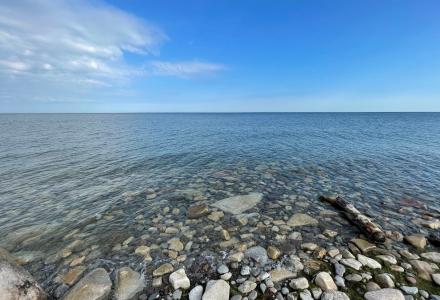
Preventing harm to the waters of the Great Lakes from diversion or shipment outside of the basin is a visceral issue for those who love the lakes. When a private firm received a permit in 1998 to take Lake Superior water and export it via tanker to overseas customers, the resulting public uproar not only halted the project, but prompted the U.S. and Canadian governments to ask the IJC to study and report on the issue.
The resulting IJC report to the governments, “Protection of the Waters of the Great Lakes,” issued in 2000, provided a road map for assuring that consumptive uses, diversions and exports of the basin’s water did not injure the lakes. The report recommended that no permits for removing water from the basin be issued unless there are no practical alternatives, and called for periodic IJC reviews of progress in protecting the lakes and their sustainable uses.
The IJC has just completed its second review of progress. Formally submitted to governments in January 2016, the report describes efforts to protect the Great Lakes from consumptive uses, diversions and exports and calls the findings “for the most part a good news story.”
 The report notes that the most significant accomplishment since the IJC’s 2000 study was the enactment in 2008 of the Great Lakes-St. Lawrence River Basin Compact among the eight Great Lakes states and a parallel agreement among the states, Ontario and Quebec to ban most diversions.
The report notes that the most significant accomplishment since the IJC’s 2000 study was the enactment in 2008 of the Great Lakes-St. Lawrence River Basin Compact among the eight Great Lakes states and a parallel agreement among the states, Ontario and Quebec to ban most diversions.
The IJC’s latest report is based on analysis by two water experts, Ralph Pentland of Ottawa, Ontario, and Dr. Alex Mayer of Houghton, Michigan, who reviewed water use trends and forecasts, and changes in laws, policies and management strategies since 2000.
Today, there are still proposals related to protecting the waters of the Great Lakes. The Great Lakes and St. Lawrence Governors’ and Premiers Regional Body is currently reviewing an application by the city of Waukesha, Wisconsin, to divert water from Lake Michigan to address current and future domestic water supply needs. Public comments are now being taken at waukeshadiversion.org. The IJC is not directly involved in this process, but we are watching it with interest.
To strengthen the region’s defenses against large scale diversion even further, the IJC recommends in its new report that states and provinces consider a binational public trust framework as a backstop to the 2008 Compact and Agreement; and that states, provinces and federal governments develop methods for improving the accuracy of Great Lakes water use and consumptive use estimates.
“Moving forward, it is important to remember that there really is no ‘surplus’ water in the Great Lakes Basin,” the IJC report says. “From an ecosystem perspective, it is all in use, even in periods of high supply. There continue to be large voids between our knowledge regarding levels and flows, and the impact they have on the ecosystem of the basin.
“Due to prevailing uncertainties such as those posed by climate change and the sheer threat of the unexpected, the precautionary principle needs to be continually applied by basin jurisdictions to ensure, to the extent possible, adequate supplies for all socio-economic and ecosystem uses for the long term.”





